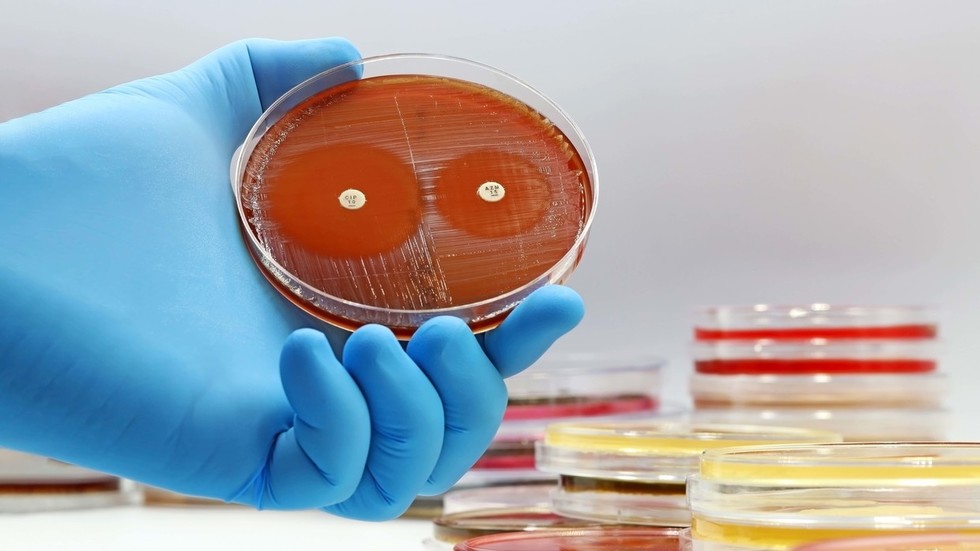Researchers are increasingly bringing attention to the escalating issue of antibiotic resistance, urging the need for enhanced funding, expeditious drug approvals, and the recommencement of domestic drug production. According to reports from Germany, medical professionals are sounding alarms about a potential regression to pre-penicillin times, emphasizing that the achievements made in modern medicine are at substantial risk. Mathias Pletz from the Paul Ehrlich Society for Infection Therapy highlighted the grave situation, stating that modern medicine’s advancements, particularly those made possible by antibiotics, are now under threat from the rising tide of antibiotic-resistant pathogens. The significance of antibiotics, as noted by Professor Yvonne Mast from the Leibniz Institute in Braunschweig, cannot be overstated, as they were pivotal in prolonging human life and combating bacterial infections.
While antibiotic-resistant infections already lead to tens of thousands of deaths across Europe annually, projections suggest that if the current trends continue unchecked, up to 39 million lives could be lost globally by the year 2050. Medical professionals highlight that one of the contributory factors to this alarming increase in resistance is the overprescription of antibiotics by doctors, particularly in outpatient settings where antibiotics are often ineffective against viral infections. Professor Frank Brunkhorst from Jena University Hospital pointed out the international travel surge as a major avenue for resistant strains to enter Germany, especially from countries like Greece, Portugal, Turkey, and various nations in Asia. He cautioned that holidaymakers risk bringing back pathogens that could pose significant health threats, particularly to vulnerable elderly relatives.
The slow pace of new antibiotic development presents another significant challenge. Professor Mast noted the disparity between the number of new antibiotic medications approved and the ongoing crisis, with only 12 new drugs introduced since 2017. The arduous path to market – encompassing a staggering one in 5,000 substances reaching the final stage, alongside development timelines extending anywhere from 8 to 15 years – contributes to the pharmaceutical industry’s reluctance to pursue antibiotic research. Furthermore, the financial predicament cannot be overlooked, as the Research and Development (R&D) costs for new antibiotics can balloon to $2 billion, making their development less appealing from a profit standpoint.
Aside from the overlooked costs, the research landscape shows that China is outpacing Germany in antibiotic development, which raises additional concerns regarding national and European healthcare sovereignty. Both Professors Mast and Brunkhorst are calling for strategic political action to revive antibiotic manufacturing within Germany and broader Europe, as dependency on foreign production from nations like India and China is precarious. They highlight the pressing need for a cooperative effort to phase in domestic production capabilities to better safeguard public health and ensure timely access to effective treatments.
In response to this growing health crisis, experts argue that there is an urgent requirement for increased government funding in antibiotic research and development. More resources would not only facilitate faster approvals for new medications but would also incentivize pharmaceutical companies to invest in this sector, ultimately addressing the lack of innovative antibiotics in the pipeline. Both Pletz and Mast have made it clear that without decisive intervention and increased investment in scientific research, the advances made in fighting infections could rapidly erode, leading society back to the pre-antibiotic dark ages.
The warnings issued by these researchers and medical professionals reflect a uniform concern regarding the future trajectory of global health. The multifaceted nature of antibiotic resistance necessitates a comprehensive approach involving not only medical professionals but also policymakers, researchers, and the public to develop strategies that will fortify healthcare systems. This collaborative effort is essential to mitigate the rising threat of antibiotic-resistant bacteria, ensure effective treatment for infectious diseases, and ultimately safeguard the public health achievements we stand to lose without proper action. Without such measures, the reality of millions of deaths from otherwise treatable infections could become a devastating reality, one that society is not prepared to face.

